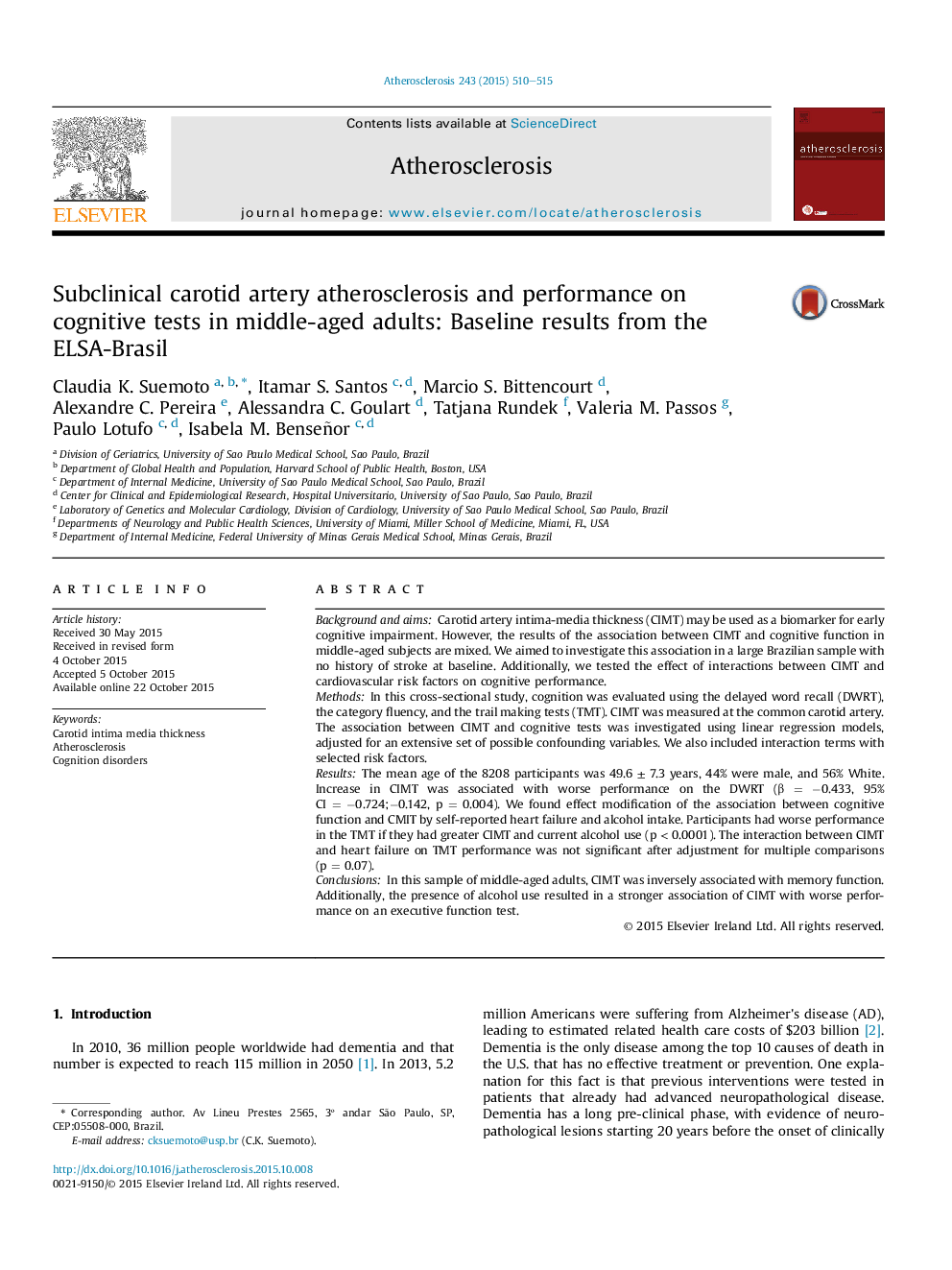| Article ID | Journal | Published Year | Pages | File Type |
|---|---|---|---|---|
| 2892676 | Atherosclerosis | 2015 | 6 Pages |
Background and aimsCarotid artery intima-media thickness (CIMT) may be used as a biomarker for early cognitive impairment. However, the results of the association between CIMT and cognitive function in middle-aged subjects are mixed. We aimed to investigate this association in a large Brazilian sample with no history of stroke at baseline. Additionally, we tested the effect of interactions between CIMT and cardiovascular risk factors on cognitive performance.MethodsIn this cross-sectional study, cognition was evaluated using the delayed word recall (DWRT), the category fluency, and the trail making tests (TMT). CIMT was measured at the common carotid artery. The association between CIMT and cognitive tests was investigated using linear regression models, adjusted for an extensive set of possible confounding variables. We also included interaction terms with selected risk factors.ResultsThe mean age of the 8208 participants was 49.6 ± 7.3 years, 44% were male, and 56% White. Increase in CIMT was associated with worse performance on the DWRT (β = −0.433, 95%CI = −0.724;−0.142, p = 0.004). We found effect modification of the association between cognitive function and CMIT by self-reported heart failure and alcohol intake. Participants had worse performance in the TMT if they had greater CIMT and current alcohol use (p < 0.0001). The interaction between CIMT and heart failure on TMT performance was not significant after adjustment for multiple comparisons (p = 0.07).ConclusionsIn this sample of middle-aged adults, CIMT was inversely associated with memory function. Additionally, the presence of alcohol use resulted in a stronger association of CIMT with worse performance on an executive function test.
